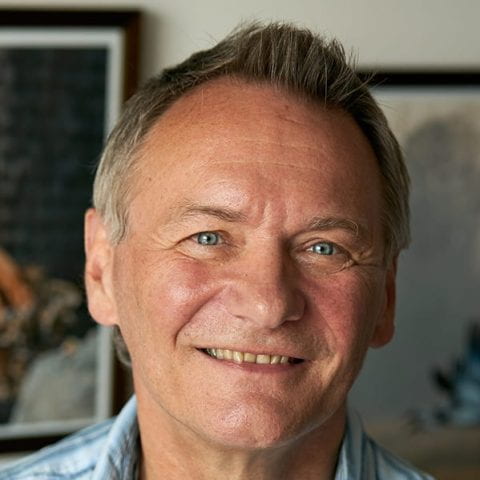David Russell, PhD

Dr. Russell’s laboratory’s research focuses on the interplay between the macrophage and the intracellular pathogens Mycobacterium tuberculosis (Mtb) and Human Immunodeficiency Virus (HIV).
Tuberculosis: The success of Mtb as a pathogen depends on the ability of the bacterium to survive and persist within the host macrophage. We are actively engaged in studying the behavior of both partners in this intimate relationship. We have developed real-time fluorescent readouts of bacterial fitness and replication and have been exploiting these to identify those host cells most able to limit bacterial growth, and those host cells most permissive for bacterial growth. We have used these reporter strains to probe experimental murine infections to functionally-define the host phagocyte subsets present in the infected lung tissue. These data are used to inform ongoing collaborations looking at cells and tissue from human tuberculosis patents at the Malawi-Liverpool-Wellcome Clinical Research Program in Blantyre, Malawi, and the African Health Research Institute, Durban South Africa.
In addition, we have developed an array of fluorescence-based phenotypic screens for drug discovery. We have a high-throughput screening platform in our BSL3 lab that enables us to interrogate extensive compound libraries against intracellular Mtb. We have already performed extensive screening and have identified novel bacterial targets and candidate lead compounds active against this bacterium. This work is conducted in collaboration with the California Institute for Biomedical Research (Calibr), San Diego.
HIV: In addition to infecting CD4 lymphocytes, HIV also infects macrophages, where it sets up a chronic, long-lived infection capable of generating infectious virus. The lab is studying how human alveolar macrophages respond to HIV and how HIV infection of the macrophage directly influences the ability of the body to control other infections, such as tuberculosis. These human studies are pursued through a collaboration with the Malawi-Liverpool-Wellcome Trust Research Laboratories, Blantyre, Malawi.
The research is supported by grants from the NIAID Institute of the National Institutes of Health, DARPA, and by the Bill and Melinda Gates Foundation.


